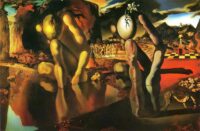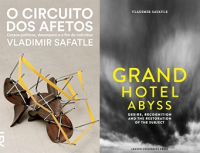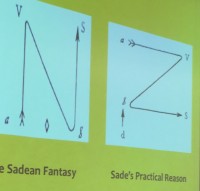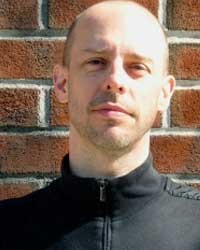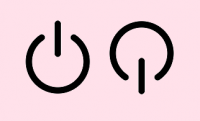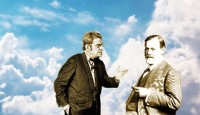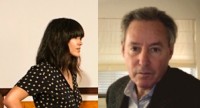The Candidate Journal
About The Candidate Journal is a peer-reviewed publication dedicated to exploring psychoanalysis across generations, institutes, and theories. Our goal is to foster a vibrant psychoanalytic community and to work collaboratively to promote ongoing conversation about psychoanalysis in its many varieties. To that end, we are committed to flexibility and to a diversity of contributions from psychoanalysts at any stage in their careers. History The Candidate Journal grew from an assignment given to candidates at NYU/IPE in which they were asked to produce a piece of writing on a subject of interest that they didn’t see reflected in mainstream journals. This experiment launched the idea of a journal that could give voice to the experience of psychoanalytic candidates, with articles written by bo...Read More
Ray O’Neill on Dali, Lacan, Freud, Narcissism & the Double
Irish Lacanian psychoanalyst Ray O’Neill discusses the life and work of Salvador Dali from a psychoanalytic viewpoint, addressing narcissism, the theory of the double & posing the question what’s really in a name? This talk was first presented at the Psychoanalysis, Art & the Occult conference in London, and is titled “Double Double, Toil and Trouble, Psychoanalysis Burn and Surrealism Bubble”. For more from Dr. O’Neill visit: www.machna.ie www.renderingunconscious.org
Freud as a Thinker of the Social Body: Fear and Distress as Political Affects – A Conversation between Vladimir Safatle and Marcus Coelen
Lacan famously said that affects lie, and the only affect that doesn’t lie is anxiety. The question of affect is of course a dense topic in Freud, not quite emotion, not quite drive, perhaps something repressed, perhaps some kind of oozing of the repressed, all of which seems to make and break social bonds. What is the relationship between affect and language? What is the difference between affect, psychoanalytically speaking, and the more conventional ‘feeling’? While it is true that affect theory is enjoying new prominence within philosophy, it is likewise true that affects have been a point of contention throughout psychoanalytic history. In this conversation— centered around Vladimir Safatle’s new book, The Circuit of Affects: Political Bodies, Distress and the End of...Read More
What is (Das) Unbehagen?!
(Das) Unbehagen is a collective for those who love psychoanalysis including clinicians, academics, artists and intellectuals. It is an association formed for the investigation of psychoanalysis free from the constraints of theoretical allegiance, institutes and other authorizing bodies, including local and national organizations.
Dany Nobus: Writing as an Instrument of Torture – An Exploration of Kant’s Practical Reason via Lacan’s ‘Kant with Sade’
Of the twenty-eight substantial papers and six shorter contributions that make up Lacan’sÉcrits, ‘Kant with Sade’ is generally regarded as one of the toughest nuts to crack, and this opinion is shared by some of the most eminent and knowledgeable commentators on Lacan’s work. In this seminar, I will unpack one of the crucial lines of Lacan’s argument in ‘Kant with Sade’, notably that the contents of Sade’s libertine novels, which he also designated as “the Sadean fantasy”, i.e. the fantasy Sade articulated as a literary text within the space of his creative imagination, cannot be mapped directly onto the author’s life. Although it is the ‘sadistic’ fantasy of Sade’s libertine heroes that tends to dominate within the Sadean fantasy—whose full spectrum also includes the more ‘masochistic’ si...Read More
Patricia Gherovici: Attack of the Difficult Ecrits – Class 2 – The Situation of Psychoanalysis
This class was based on a collaborative annotated reading by Patricia Gherovici and Manya Steinkoler of Lacan’s “The Situation of Psychoanalysis and the Training of Psychoanalysts in 1956,” to be published in the forthcoming Reading the Écrits – A Guide to Lacan’s Works, edited by Derek Hook, Calum Neill, and Stijn Vanheule. The following is an excerpt from this forthcoming volume, posted here with permission from the editors: Psychoanalytic Fable In the essay, fittingly vituperative, Lacan will now adopt an absurdist tone in what will take the form of an extended fable emulating moralist philosopher Jean de la Bruyere (1645-1696)’s satires inspired by Theophrastus (371-287 BC). Both authors are dear to Lacan, and the French comic tradition. Lacan describes the pitfalls of the bureau...Read More
Jamieson Webster: Attack of the Difficult Ecrits – Class I – Variations on the Standard Treatment
A poetic rendition by Cecilia Wu If we follow Jamieson’s lead and focus on the writing itself, considering the fact that Lacan’s writings are unsweetened, condensed transcripts of his speech acts, it’s hard to dismiss his mode of attack as a pain in the ass, or as unruly hunks of raw hide to be adorned with the transferential ornaments of infantile hate. Lacan himself counsels against merely reproducing the crossfire of attack and counterattack, serially recapitulating a civil war of transference that exiles the enemy while clinging to the hope that it will all come out in the wash. The clash of minor differences runs through an opinionator equalizer akin to the trifling ‘intermediary discourse’ Lacan wishes to silence, the chatter that enforces homeostasis as...Read More
Scott Von: SCHIZOANALYSIS
Scott Von is a psychoanalyst and physician and Director of the New Clinic for Integral Medicine and Psychiatry in New York. He has taught as a professor at NYU, CUNY, Pacific College, and ACTCM Medical School, and is a member of Apres-Coup Psychoanalytic Association. He is also a poet and artist currently working with the Cabinet Gallery in London where he has produced the four volume multimodal work Autopoesis. He is the author of the forthcoming Schizoanalysis: Chaos & Complexity in Clinical Practice and Orgonomy: Integral Medicine & Psychiatry.
Patricia Gherovici: TWO FUND(a)MENTAL CONCEPTS OF LACANIAN PSYCHOANALYSIS – THE PHALLUS AND OBJECT « a »
Four classes: May 22, 29, June 19, 26, 2014. Can psychoanalysis rethink sexuality without fully relying on the controversial and contested notion of the phallus? The simplest, schematic version of the Freudian Oedipal model offers a binary logic of having or not having it, of presence or absence: boys have it, girls don’t. For Freud, castration is a loss that women think they have suffered and that men fear. For Lacan, the phallus is clearly not the penis; for him castration is even a more fundamental loss affecting both sexes since both sexes are castrated. Nobody can have the phallus or can be it. In the mother’s body, nothing is missing. Lack is purely a logical limit—the mother is deprived of something she does not have. The phallus is the object that appears to veil a symbolic ...Read More
Patricia Gherovici: Two Fund(a)mental Concepts of Lacanian Psychoanalysis – A Course on The Phallus and object a
Can psychoanalysis rethink sexuality without fully relying on the controversial and contested notion of the phallus? The simplest, schematic version of the Freudian Oedipal model offers a binary logic of having or not having it, of presence or absence: boys have it, girls don’t. For Freud, castration is a loss that women think they have suffered and that men fear. For Lacan, the phallus is clearly not the penis; for him castration is even a more fundamental loss affecting both sexes since both sexes are castrated. Nobody can have the phallus or can be it. In the mother’s body, nothing is missing. Lack is purely a logical limit—the mother is deprived of something she does not have. The phallus is the object that appears to veil a symbolic lack. It should not come as a surprise that Lacan’s ...Read More
Jamieson Webster & David Lichtenstein: Jacques Lacan’s Return to Freud and Its Clinical Implications II
A common misconception concerning Jacques Lacan is that his work was inherently un-clinical— that he did not discuss clinical issues concerning technique or provide clinical cases—making him more of a philosopher or meta-theoretician. In this course, we hope to dispel this mischaracterization and begin with key clinical cases touched on by Lacan during his Seminars from 1952-1980, from Freud’s Little Hans and The Case of a Female Homosexual, to his discussion of cases by other psychoanalysts such as Ernst Kris, Ella Freeman Sharpe, and Joan Riviere. Through this reading of cases and Lacan’s often unknown and extensive commentary on them, we hope to touch on some key Lacanian concepts— the signifier, desire, castration, the Real, and feminine sexuality— in order to better grasp their place ...Read More
David Lichtenstein and Jamieson Webster: Jacques Lacan’s Return to Freud and its Clinical Implications II
Class, 6 Sessions: Tuesdays, January 7 – February 11, 2014 / 8-9:30pm A common misconception concerning Jacques Lacan is that his work was inherently un-clinical— that he did not discuss clinical issues concerning technique or provide clinical cases— making him more of a philosopher or meta-theoretician. In this course, we hope to dispel this mischaracterization and begin with key clinical cases touched on by Lacan during his Seminars from 1952-1980, from Freud’s Little Hans and The Case of a Female Homosexual, to his discussion of cases by other psychoanalysts such as Ernst Kris, Ella Freeman Sharpe, and Joan Riviere. Through this reading of cases and Lacan’s often unknown and extensive commentary on them, we hope to touch on some key Lacanian concepts— the signifier, desire, castration, ...Read More
